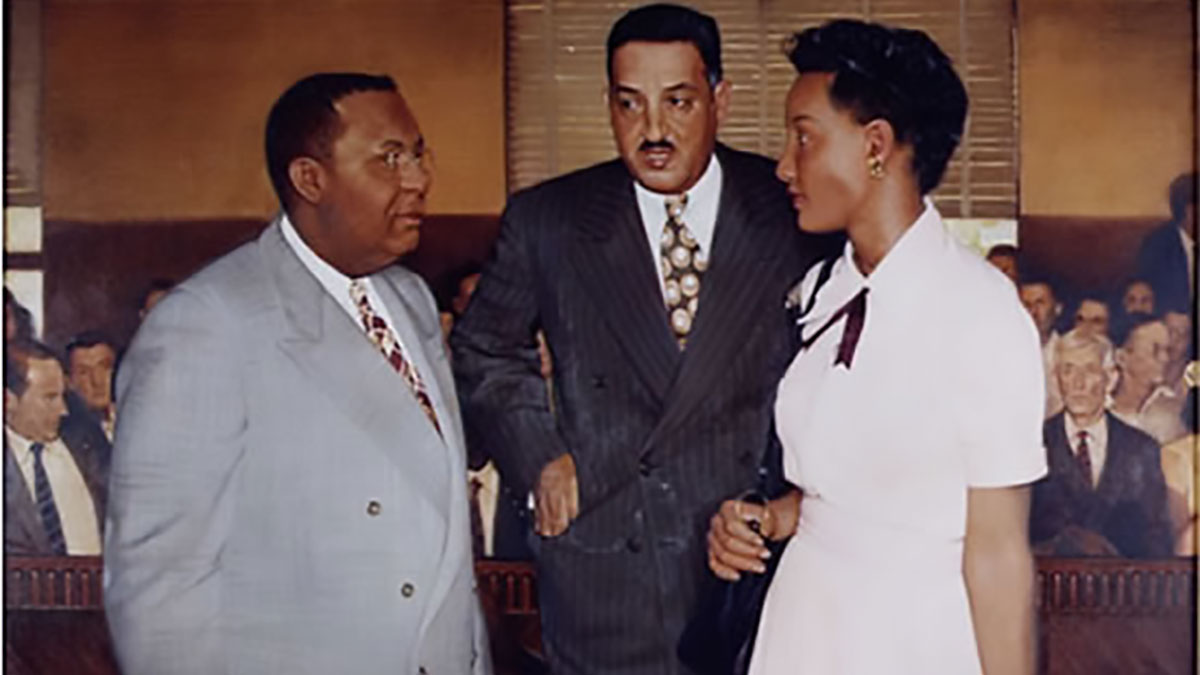
JUNE 18, 1949

Ada Sipuel Fisher became the first Black woman to attend an all-white law school in the South when she entered the University of Oklahoma Law School.
Her parents had survived the 1921 Tulsa massacre, and her family moved to Chickasha, where she was born and grew up. She became valedictorian of her local high school and decided to become a lawyer after hearing Thurgood Marshall speak.
With the backing of both her family and the NAACP, she applied to the University of Oklahoma Law School, which rejected her strictly on the basis of race. When Marshall began to represent her in her battle for admission, the Oklahoma Legislature decided to step in and create a brand-new law school in five days that was nothing more than a room inside the state Capitol, and the Oklahoma courts agreed these two law schools were “equal.”
After the U.S. Supreme Court concluded that the law school could not bar students based on race, Oklahoma officials decided to admit her. Although she recalled white classmates welcoming her, she was forced to sit in the back of the room behind a sign that read “colored” and had to eat in a separate part of the cafeteria.
Her journey to law school began in 1946 when she applied to the law school. A half-dozen Black students joined her in the fight. Two years later, the Supreme Court ruled in their favor, ending segregation for Black students in graduate programs.
In 1952, Fisher graduated and began practicing law. In 1992, Oklahoma Gov. David Walters appointed her to the University of Oklahoma’s Board of Regents. She vowed to bring enlightenment to the position, noting that she had “suffered severely from bigotry and racial discrimination as a student.”
After her 1995 death, the law named a garden to honor her, and a bronze plaque talked of “how the stone that the builders once rejected becomes the cornerstone.” The law school has since received more than $1 million to endow the Ada Lois Sipuel Fisher Chair in Civil Rights, Race and Justice in Law to teach, research and empower future lawyers.


